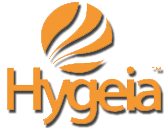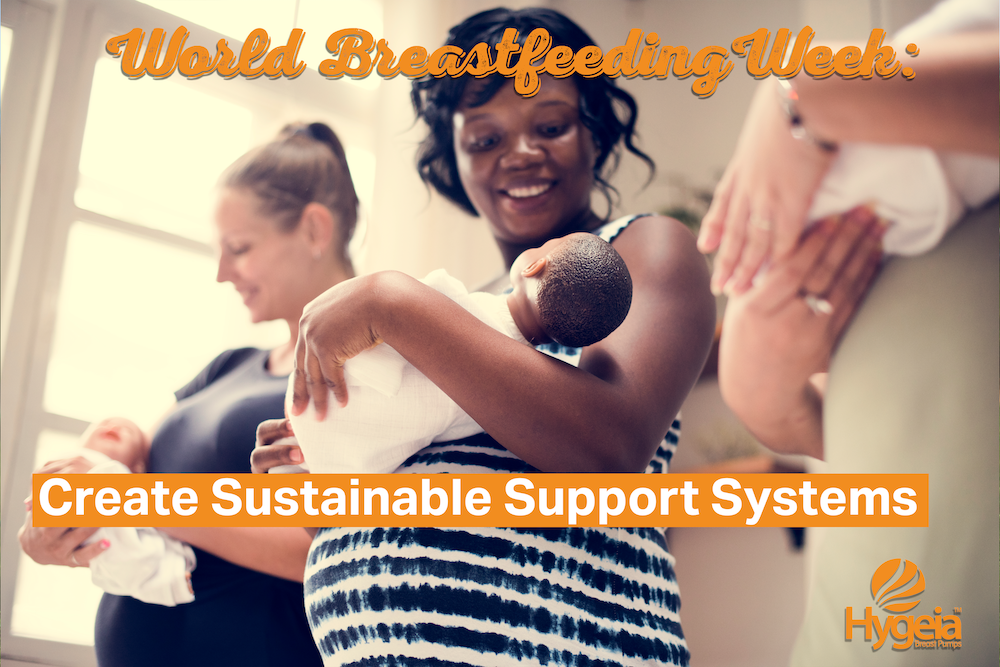The most common word used to describe breastfeeding is “natural”. This act shared between mother and baby reflects the beauty found in the natural role of motherhood. “Natural” also reflects why breastfeeding needs prioritized in today’s world. Breastfeeding is a natural solution and therefore a sustainable one. World Breastfeeding Week 2025 inspires us to look beyond the immediate act of feeding and consider a much bigger picture. This blog post will dive into the this year’s theme: “Prioritize Breastfeeding: Create sustainable support systems.”
The Environmental Toll of Artificial Feeding
Hygeia is in full support of all mother’s and how they choose to feed their babies, be it breastfeeding or formula. Fed is best. No questions. This is truly the most important thing for every baby and that every mom knows what is best for her and her baby.
However, it is important to recognize that the environmental impact of artificial feeding is considerable. The entire process of formula production is energy-intensive and resource-heavy. From sourcing ingredients to manufacturing, packaging, and global distribution, it is a far cry from a “natural renewable food” like breast milk. One one hand, breast milk is environmentally safe and produced and delivered to the consumer without pollution, packaging, or waste. Artificial milk options demand significant amounts of electricity, fuel for transportation, and water for processing and cleaning. The waste generated, from non-recyclable containers to discarded formula, places a heavy burden on our planet’s ecosystems.
Building Sustainable Support Systems
Recognizing breastfeeding’s vital role in a sustainable future isn’t enough. We must create robust and sustainable support systems for families. There are numerous ways this can be done.
- Community Support: Grass roots is where all things begin. Fostering networks of lactation consultants, peer support groups, and family encouragement are necessary for normalizing breastfeeding. At Hygeia, we offer lactation support in partnership with Nest Collaborative. These virtual breastfeeding consults are accessible anytime, anywhere, and covered by most insurance plans.
- Workplace Policies: For breastfeeding to be normalized there must be support in the workplace. This will happen through advocacy for comprehensive paid maternity leave and flexible work arrangements. Additionally, moms need dedicated breastfeeding-friendly environments with clean, private lactation spaces.
- Healthcare System: The support and education must begin from day one for mothers. We must ensure that healthcare providers are well-trained in lactation support. Facilities must also adhere to best practices like the Baby-Friendly Hospital Initiative.
- Policy and Advocacy: Globally, we must endorse policies that protect, promote, and support breastfeeding. This includes strict adherence to the International Code of Marketing of Breast-milk Substitutes to counter misleading marketing.
- Changing the Narrative: All of these steps will play a part, but individuals must also work to normalize breastfeeding in all settings. Encourage a mom who is breastfeeding in public. Educate a friend on her public breastfeeding rights. Help dismantle any lingering stigma around breastfeeding.
Breastfeed
At Hygeia, we believe that empowering mothers is the first step toward a more sustainable future. By providing you with access to our high-quality breast pumps, we aim to make breastfeeding a comfortable and efficient experience. Every journey is unique, which is why we’re dedicated to helping you get your pump 100% covered by your insurance plan. We are removing financial barriers to this natural choice.
Supporting a mother is an act of environmental stewardship. By strengthening the systems around us—from our communities to our workplaces—we can make breastfeeding a realistic option for more families. It’s an investment in a healthier tomorrow, for our children and for our planet. Therefore, join us in championing this natural, sustainable solution during World Breastfeeding Week.

